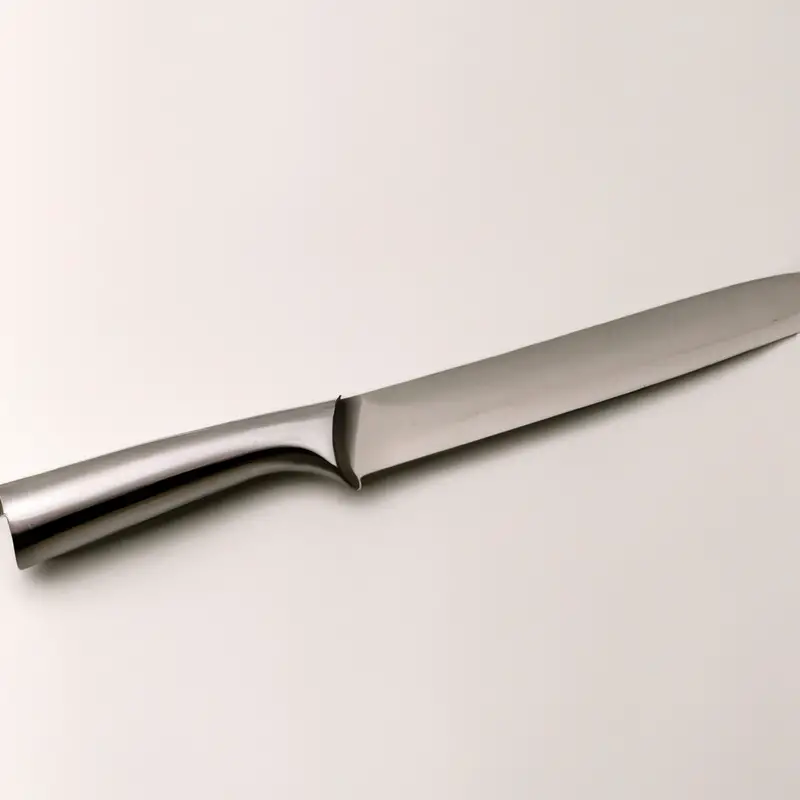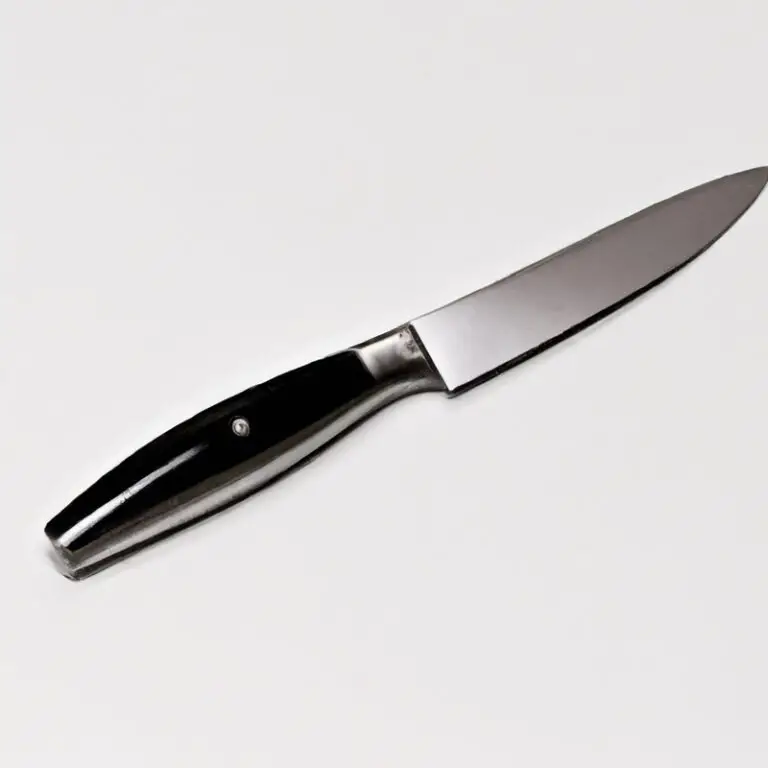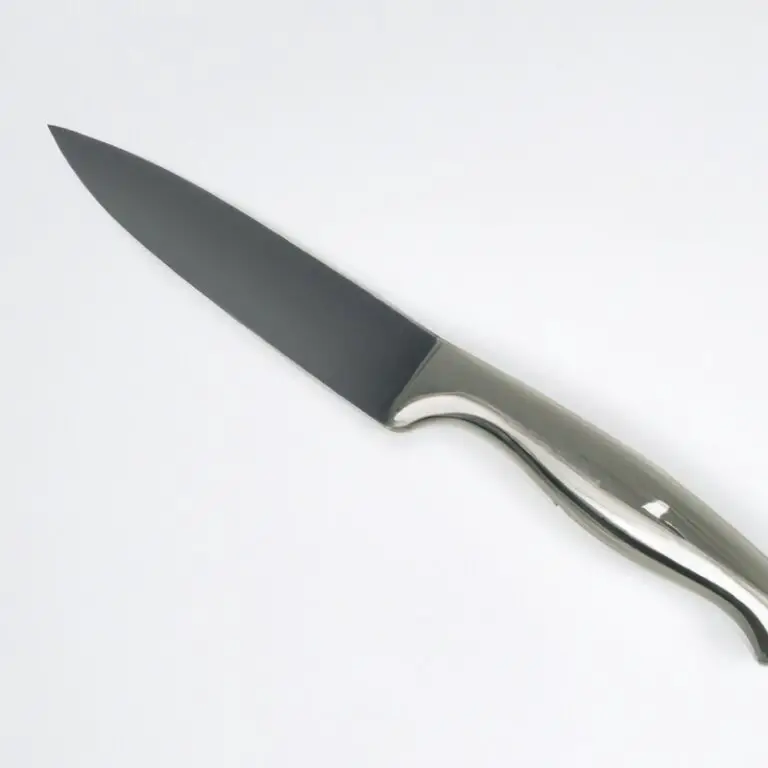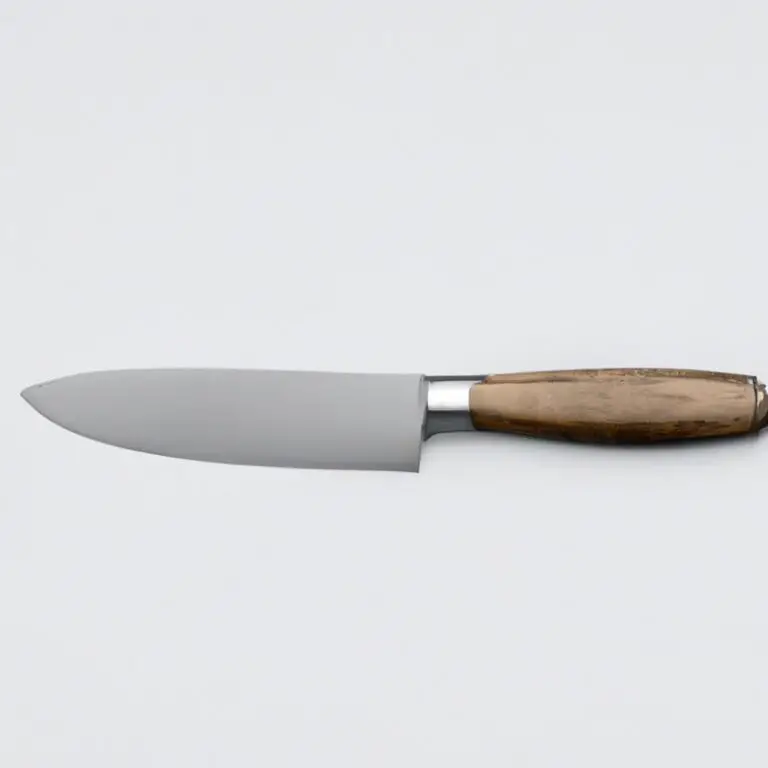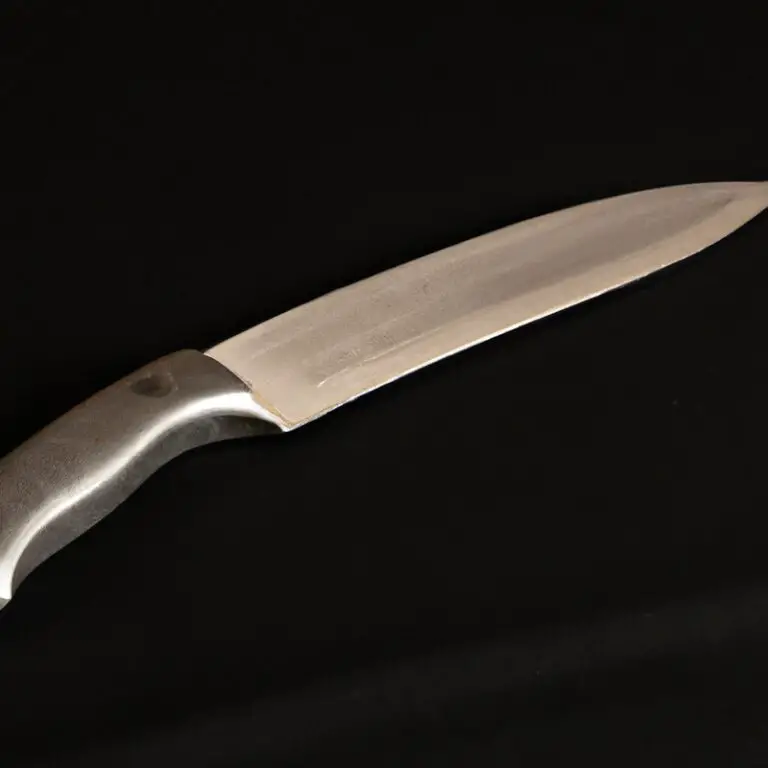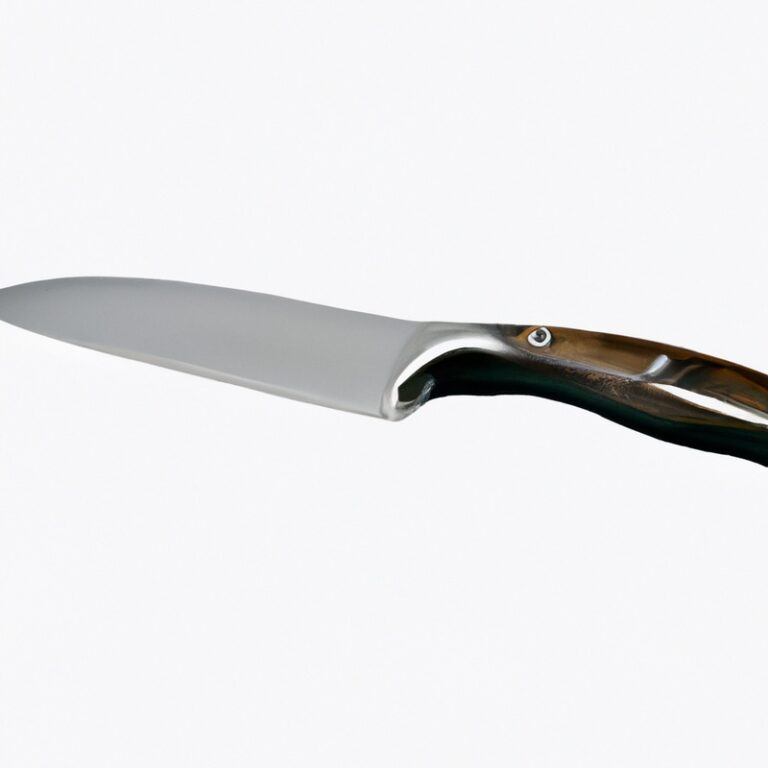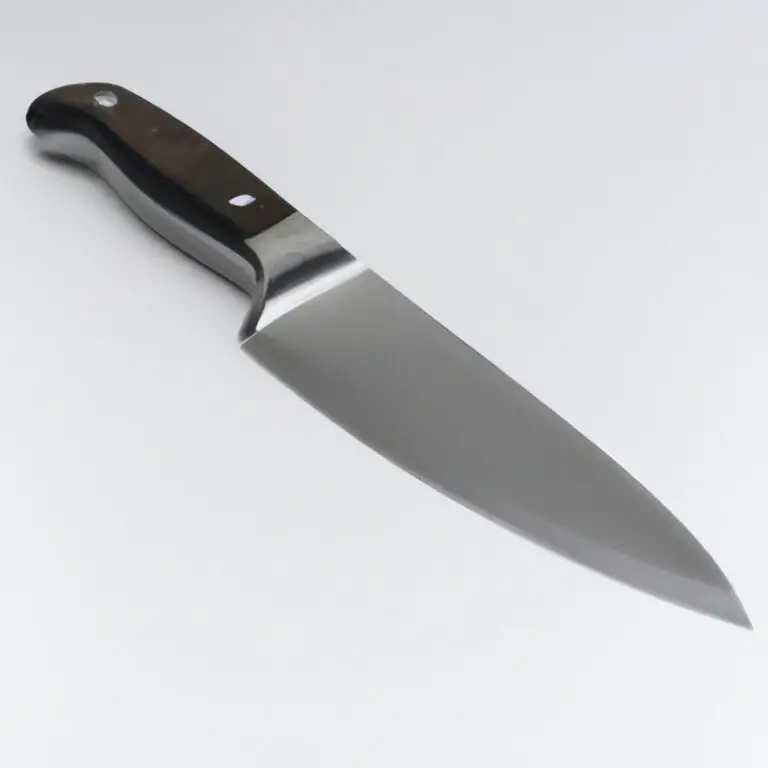How To Prevent Rust Spots On Your Paring Knife
Key Takeaways:
- Keep your paring knife clean and dry after each use to prevent rust spots from forming.
- Use a soft cloth or paper towel to wipe the blade carefully, taking care not to leave any moisture behind.
- Consider investing in a high-quality stainless steel paring knife to reduce the risk of rust spots appearing.
- Always store your knife in a dry place, preferably in a knife block or on a magnetic strip, to keep it away from moisture and humidity.
Are you tired of dealing with pesky rust spots on your trusty paring knife? Keeping your knife rust-free not only ensures its longevity but also maintains its sharpness.
The good news is that preventing rust spots is not rocket science, but it requires proper care and maintenance.
In this article, I will share my knowledge and experience to guide you through different methods and techniques to keep rust at bay. From proper cleaning techniques and applying oil to the blade to choosing the right material and using your knife with care, we’ve got you covered.
So, let’s dive in and keep your knife rust-free!
| Method | Description |
|---|---|
| Wipe Dry | Always wipe your paring knife dry immediately after washing it. |
| Oil | Rub a few drops of oil on the blade every so often to prevent rust from forming. |
| Store Properly | Store your knife in a dry, well-ventilated location, away from sources of moisture. |
| Avoid Dishwashers | Do not put your knife in the dishwasher as the harsh detergents and high heat can damage the blade over time. |
Understanding Rust Development
Understanding Rust Development: Rust is a reddish-brown, flaky material that forms on iron or steel metal surfaces exposed to moisture and air. It occurs due to the reaction between iron, oxygen in the air, and water or humidity.
Paring knives, being made of high-carbon steel, are prone to rust development if not adequately taken care of.
When rust is formed on the blade of the knife, it can affect the cutting performance, attract bacteria, and cause the food to change color. Therefore, understanding rust development is crucial to prevent rust spots on your paring knife.
Remember to keep your knife clean, dry, and oiled to prevent rust formation.
Proper storage and avoidance of moisture exposure are equally essential to prevent rust development. Consider these factors to prolong the lifespan of your paring knife and ensure its performance.
Proper Cleaning Techniques for Paring Knife
Proper cleaning techniques for a paring knife involve using warm soapy water, a soft sponge, and wiping the blade dry immediately after washing. Avoid placing the knife in a dishwashing machine as the harsh chemicals can damage the blade.
Use a toothbrush to scrub the handle, and if food particles are stuck in the blade’s nooks and crannies, use a toothpick or cotton swab to remove them.
Always dry the blade with a clean towel or cloth. Avoid air-drying as it can cause water spots on the blade, which can lead to rust development.
Drying the Paring Knife Thoroughly
After cleaning your paring knife, it is essential to dry it thoroughly to prevent rust development. Moisture left on the blade can cause oxidation and lead to rust spots.
To dry your knife, use a clean, dry cloth or a paper towel to wipe it down.
Make sure to get into all the nooks and crannies to ensure that the blade is completely dry. Additionally, you can use a hairdryer on low heat to remove any leftover moisture on the blade.
Avoid air drying as it can leave water spots.
By drying your paring knife thoroughly, you can prevent rust spots and prolong its lifespan.
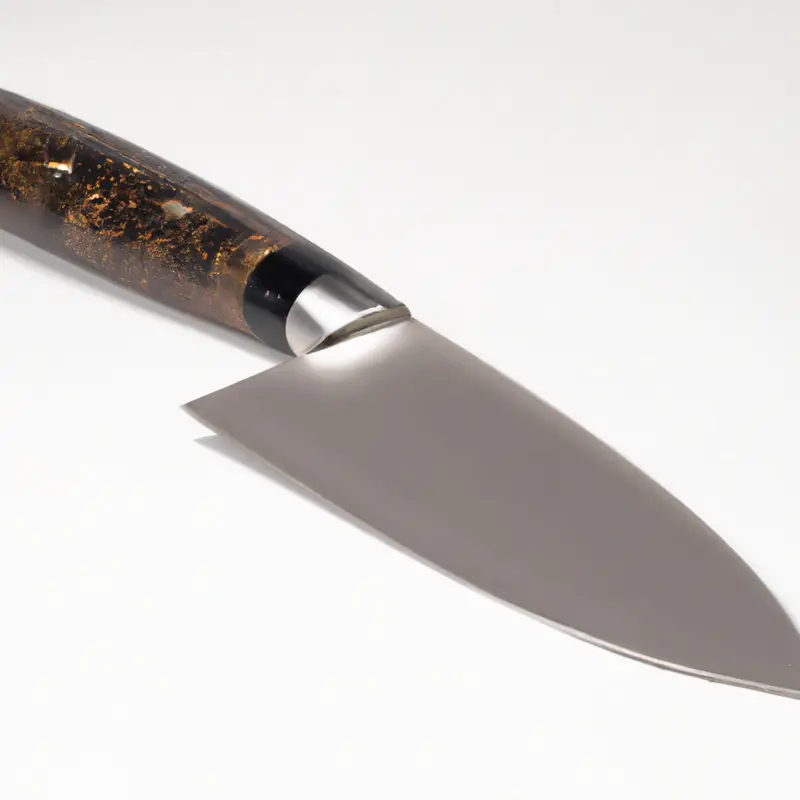
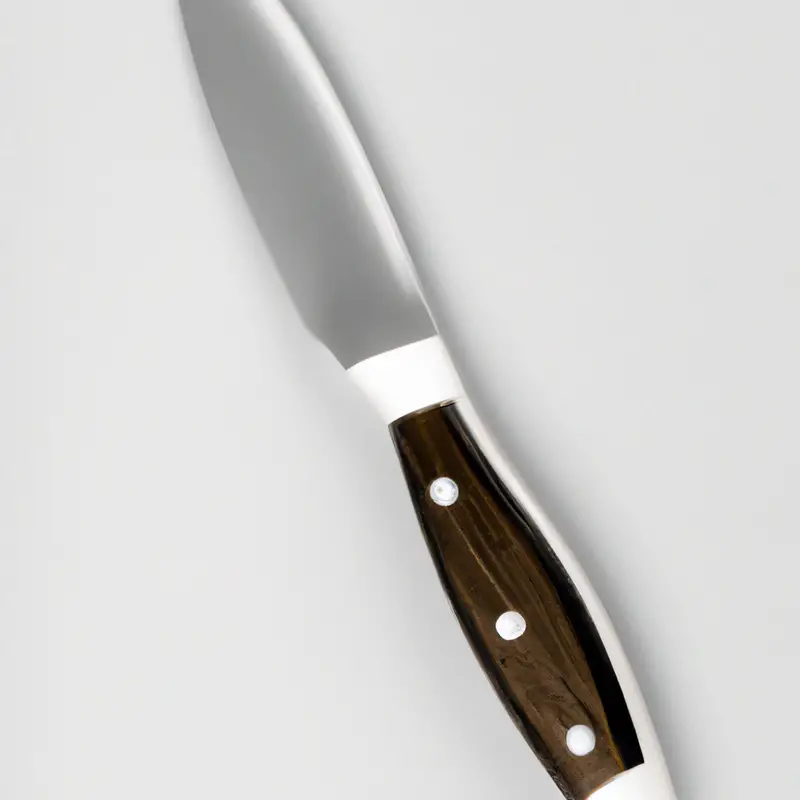
Applying Oil to the Blade
Applying oil to the blade can help prevent a paring knife from developing rust spots. The oil creates a barrier between the blade and moisture, preventing rust from forming.
It is essential to use food-grade mineral oil or vegetable oil to avoid any risks of toxicity.
To apply the oil, first, ensure the knife is clean and dry. Then, apply a small amount of oil to a soft cloth or paper towel.
Gently rub the oil onto the blade, making sure to cover the entire surface.
Finally, let the oil sit on the blade for about 10-15 minutes before wiping off any excess. It is important to note that applying oil to the blade is not a substitute for regular cleaning and maintenance.
The oil is merely a protective measure and should be applied in conjunction with proper cleaning techniques and regular upkeep.
In addition to preventing rust, applying oil can also help keep the blade sharp by reducing friction and minimizing wear and tear. Remember to reapply the oil as needed, especially after each use or if the knife has been exposed to moisture.
Overall, applying oil to the blade is a simple and effective way to prevent rust and prolong the life of a paring knife.
Storing the Paring Knife Correctly
Storing the paring knife correctly is crucial in preventing rust spots from forming. After cleaning and drying the blade, it is essential to store it in a dry and cool place.
Avoid storing the knife in a damp location or leaving it exposed to moisture.
One way to store a paring knife is in a knife block or sheath, where the blade is protected and separated from other kitchen utensils. Additionally, storing the knife in a closed cabinet or drawer can also help keep it away from moisture.
Remember to keep the blade covered and sheathed when not in use to extend its lifespan and prevent rust formation.
Avoiding Exposure to Moisture
Avoiding Exposure to Moisture: One of the most crucial steps in preventing rust spots on your paring knife is to avoid exposure to moisture. After using the knife, make sure to dry it off thoroughly with a soft cloth or towel.
Do not leave the knife soaking in water or even let it rest in a damp environment as this can cause rust to form.
It is also essential to store your knife in a dry place, away from any sources of moisture. Avoid leaving it in places like the sink, where it can come in contact with water, or in a damp or humid area.
By proactively avoiding exposure to moisture, you can significantly prolong the life of your paring knife and prevent rust from forming.
Choosing the Right Material for Paring Knife
Choosing the right material for your paring knife is crucial in preventing rust development. Stainless steel is the most popular material used due to its resistance to rust and corrosion.
High-carbon steel, on the other hand, is sharp and easy to maintain but is more prone to rust if not cared for properly.
Ceramic knives are also an option, but they can be brittle and costly to replace. Ultimately, the choice of material comes down to personal preference and budget.
Make sure to invest in a high-quality blade from a reputable manufacturer to ensure durability and longevity.
Maintaining a Regular Cleaning Schedule
Maintaining a regular cleaning schedule for your paring knife is crucial in preventing the development of rust spots and extending its lifespan. It is recommended to clean your knife thoroughly after each use with warm water and mild soap, making sure to reach all the crevices and angles.
If left uncleaned for an extended period, food residue and moisture can settle on the blade, leading to rust formation.
Additionally, avoiding prolonged contact with acidic foods such as tomatoes and citrus fruits can also prevent rusting. Furthermore, it is important to dry your knife completely after washing to prevent moisture buildup.
You can use a soft towel or let it air dry.
Applying a thin layer of oil to the blade before storing it can also help protect it from moisture and rust. Lastly, developing a habit of regularly cleaning and maintaining your knife can help prevent issues before they even arise, ultimately saving you time and money in the long run.
Using the Paring Knife with Care
Using the paring knife with care is crucial to prevent the development of rust spots. Here are some tips to keep your paring knife in pristine condition:
- Hold the paring knife correctly- grip the handle firmly and keep your fingers away from the sharp blade.
- Avoid using the paring knife on hard surfaces such as glass or ceramic. Instead, use a cutting board or a soft surface like wood.
- Do not use excessive force when cutting through hard objects as it can damage the blade’s edge causing rust spots to form.
- Wash the paring knife after every use using mild soap and warm water.
- Use a soft-bristled brush, toothbrush or sponge to clean the blade to avoid scratches that can also lead to rust spots.
- Rinse the knife thoroughly and dry it immediately using a soft towel.
- Avoid soaking the knife in water as it can corrode the blade, leading to premature rusting.
- Never put the paring knife in a dishwasher as the high temperature and harsh detergents in the dishwasher can damage the blade.
By using the paring knife with care, you can ensure that it maintains its sharpness and prevents the development of rust spots.
Seeking Professional Help if Needed
If you have tried all the preventive measures outlined in this article and are still experiencing rust development on your paring knife, seeking professional help is highly recommended. A professional knife sharpener or cutlery expert can assess the state of your blade and suggest the best course of action to remedy the situation.
Attempting to fix the damage on your own may further harm the blade or lead to injury.
A professional can also advise you on proper maintenance practices to avoid future rust development. Remember that investing in the help of a professional can save you time, effort, and money in the long run.
Final Verdict
Preventing rust spots on your paring knife requires a combination of proper cleaning techniques, thorough drying, and careful maintenance. By choosing the right materials, maintaining a regular cleaning schedule, and avoiding exposure to moisture, you can protect your knife and ensure its longevity.
Remember to always use your paring knife with care and seek professional help if needed.
With these tips and best practices in mind, you can maintain a clean, rust-free paring knife for years to come. Trust in the reliability of these suggestions and take action to protect your knife today.

